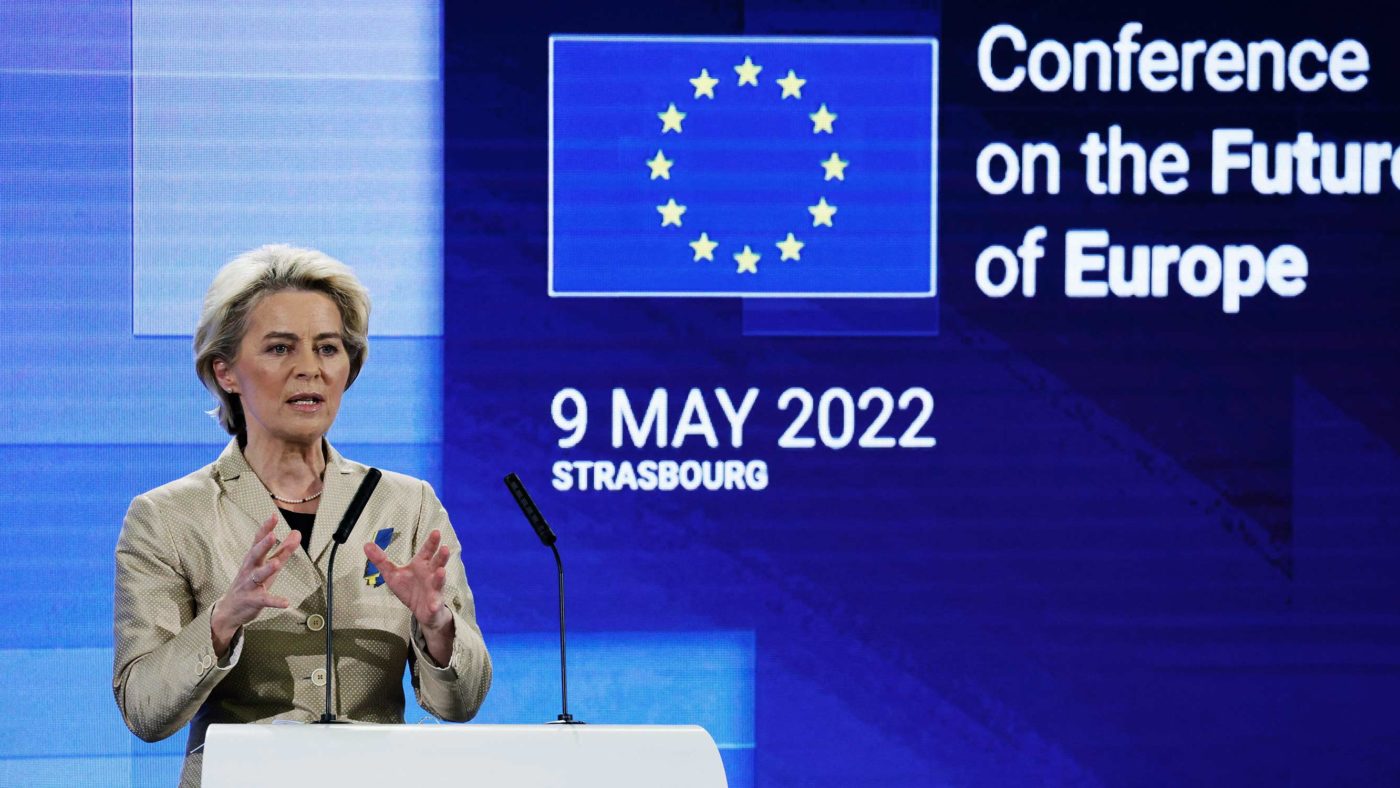For Eurosceptics who have long warned that the EU is hell-bent on sidelining national democracies, the latest moves from Ursula von der Leyen have not come as a great surprise.
In a recent speech at the Conference on the Future of Europe, von der Leyen took the opportunity to advocate for ‘more Europe’, which always translates to ‘more Brussels’ (and thus to her). Most significantly, she argued that the EU treaties need to be changed and that ‘unanimity voting in some key areas simply no longer makes sense’.
That might sound drily technical to those not steeped in EU politics, but it’s really quite important. Rather than sticking to the age-old principle of EU politics that decisions in significant policy areas require agreement from all member states, von der Leyen suggested that majority voting ought to be the norm in areas such as health and defence. All of this is necessary, she argued, ‘if we want to be able to move faster’.
Getting rid of the unanimity requirement has been a goal of the Brussels elite, bound up closely with the idea of an ‘ever closer union’. Indeed, back in 2018 the European Commission unsuccessfully attempted to abolish unanimity on tax policy: the Commission had big plans to introduce its own taxes and harmonising tax policies across the continent, only to be thwarted by countries who were understandably wary of giving up their sovereignty on such a critical area.
Since then the topic of unanimity has arisen frequently, most often in the areas of defence and foreign policy. This is one area where despite Brussels’ best efforts, member states have remained stubbornly autonomous, especially at times of conflict.
This has often led to some of the more justifiable complaints about the unanimity principle. Hungary, for instance, has blocked the EU from making statements criticising China’s human rights record or its clampdown on Hong Kong. Even more ridiculously, the EU was unable in 2020 to respond for weeks to the clampdown in Belarus because Cyprus blocked all efforts – not because its government was actually opposed, but because it wanted similar sanctions against Turkey.
That’s just one of the many times when EU policies have been blocked by a member state, not because they actually disagree with the policy, but because it used its opposition as a signal of disagreement in a different area. We’re seeing the same problem in action now, where a unified EU position on banning Russian oil has once more been held up by Orban,
So, there is a legitimate case to be made for getting rid of unanimity in certain cases, particularly when the costs of inaction are high.
Nonetheless, although the unanimity principle is open to abuse and game-playing, it has much more often safeguarded fundamental principles of national sovereignty and has prevented the ‘tyranny of the majority’ of being able to push through terrible policies that would further centralise decision-making in Brussels. Or, to put it in von der Leyen’s terms, ‘moving faster’ is not always better, and especially not if it is Brussels moving faster while weakening the voice of member states.
Ultimately, abolishing unanimity is a step on the way to the federalists’ overriding ambition: creating a United States of Europe. Getting rid of unanimity would dilute the principle that each member state has a distinct, inviolable sovereignty with control over the most important areas of its domestic policy. Instead, a ‘one-size-fits-all’ approach would take precedence, which more often than not is liable to mean smaller countries cleaving to whatever France and Germany deem best for the bloc.
In areas such as tax, foreign affairs and public health, Brussels’ writ would – at least in theory – run ever further (though who would want to give governments even more power over public health after the last two years is a moot point).
It was fear of this creeping centralisation and dilution of democracy that inspired many Brits to first oppose further integration and, ultimately, to back leaving the EU altogether. In doing so, the UK rejected a nebulous European pseudo-state and retained its sovereignty as a self-determining European nation.
This is precisely what von der Leyen and the EU want to get rid of, by creating a European Union where member states cannot decide freely on matters crucial to their wellbeing.
Click here to subscribe to our daily briefing – the best pieces from CapX and across the web.
CapX depends on the generosity of its readers. If you value what we do, please consider making a donation.


